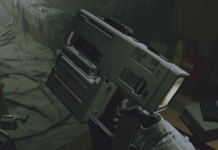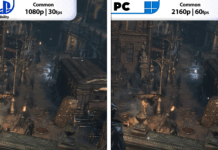/
May 15, 2022
/
6:17 p.m.
Courtesy of Weston Game Lab
A new course, Gaming History (IRHU 27010, KNOW 27010, MAAD 17010), is being offered by the Institute of Foundation of Knowledge in Spring 2022. The course is taught by Brad Bolman and Katherine Buse and is cross listed for the Inquiry and Research in Humanities program and Media Arts and Design major.
Buse’s research focuses on how science shapes and is shaped by its cultural environment. She also studies and designs video games. Bolman is a historian specializing in the history of science.
The course teaches students how history is represented in games, how games have influenced history, and which methods are used in video game research.
“We wanted to convey some of these ideas about how to do research about video games, about how to think about video games historically, and how to study video games like novels or films,” Bolman said. Both instructors believe that the study of video games is an emerging field of research that deserves more attention.
“It is incredibly important to analyze and study them historically and think about its significance,” Bolman said. “People acknowledge video games as an area of study that is important at this point, but I would say that since it is so nascent and emerging as a field that people haven’t figured out how to do it yet,” Buse added.
Through playing and analyzing a variety of games in the course, students reflect on topics such as how games can represent the economy and the role of women in video games. For example, the class discusses Return of the Obra Dinn, in which the player plays as an insurance agent to find out what happens in a ship incident. The students also learn how these topics are reflected in the game design industry in the real world, such as underpayment in gaming studios and inequalities in labor forces.
Bolman and Buse faced a variety of challenges while designing the course structure. “How do we introduce enough of a game that people understand it, and they can talk about it without having to spend six weeks playing a single game?” Bolman said. “A class about one video game is very different from a class about ten video games.”
Bolman explained that they wanted to introduce a game in which the students can explore randomly generated emergent historical events under the “big, vast history” that the game creates. “You could play this game for 600 hours or something if you wanted,” Bolman said, “but it is hard to guarantee that they’ll have the exact experience as the one that we want.”
The instructors have been impressed by how the students’ analysis of the games have improved throughout the quarter.
“We want students to be able to think critically about the video games that they are consuming and think about what it is doing, and how it’s communicating things about culture and about society,” Bolman said. “We’ve seen a real development just in that ability to engage with a game and think about its context and the choices that the developers made.”
Bolman hopes that younger students in the class can continue researching video games using the methods and topics taught in class. “If we do a really good job,” Bolman said, “we would train a small future generation of video game researchers.”
Buse and Bolman plan to offer the course again next year and encourage all interested students to enroll in the course.
Rachel Wan contributed to reporting.
The independent student newspaper of The University of Chicago since 1892.
© 2022 The Chicago Maroon.
Built & designed by Euirim Choi ’19.
Built & designed by Euirim Choi ’19.
© 2022 The Chicago Maroon.












